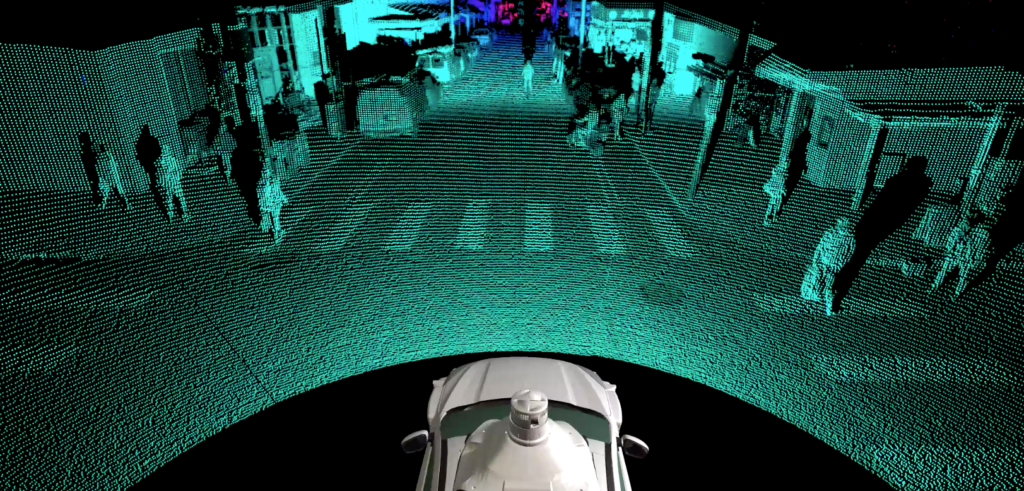According to VW, development is already underway on its first self-driving prototypes based on its ID. Buzz concept, with trials scheduled to take place in Munich, this summer. Volkswagen Commercial Vehicles (VWCV) is facilitating the development of Level 4-capable autonomous driving technology for self-driving vans, and the company feels that light commercial vehicles are the first, logical place for using autonomous transportation of people and goods.
“Our aim with the self-driving version of the ID. Buzz is to facilitate commercial deployment of transport and delivery services starting in 2025,” explained divisional director Christian Senger. “In selected cities, customers will be able to have a self-driving vehicle take them to their destination. The delivery of goods and packages will also be made much easier through our autonomous driving service.”
For the integration of the technology into the all-electric ID. Buzz, VWCV has founded a dedicated business section and partnered with Argo AI, the US-headquartered autonomous vehicle technology platform company that is developing the self-driving system.
Earlier this year, Argo integrated its self-driving system with a Volkswagen vehicle prototype to begin testing in Germany. “We believe Argo AI has the largest urban self-driving testing footprint, with operations in six cities in the US,” said Bryan Salesky, founder and CEO of Argo AI. “We are excited to begin testing our self-driving system on European roads later this year, building on the initial work we’re doing now at a new test track we established next to Munich Airport.”
Both Volkswagen Commercial Vehicles and Argo AI feel that the best approach to AD sensing demands is multilayered, with a combination of lidar, radar and cameras essential for safe self-driving capability. To this end, Argo recently unveiled its new lidar sensor, which can see objects from 400m away, with the company’s proprietary Geiger-mode lidar possessing the ability to detect light at the photon level, which it says is key to sensing objects with low reflectivity.
“This technology will be integrated in the self-driving system of Volkswagen Commercial Vehicles’ autonomous driving vehicles,” Salesky added.
VW also has concrete plans for the commercial use of the future technology for transportation service providers. Volkswagen Group subsidiary MOIA will, in 2025, become the first user of the self-driving ID. Buzz. MOIA is developing mobility services at its Berlin and Hamburg locations, and works in partnership with cities and local public transport providers. MOIA is currently developing and implementing a ridepooling system to avoid individual car traffic and to use the road infrastructure more efficiently.
“MOIA has extensive experience in the field of mobility services and fleet management,” explained company CEO Robert Henrich. “Within a very short time, we have set up Europe’s largest, all- electric ride-pooling service and provided mobility to millions of passengers. We bring this expertise to the cooperation with Volkswagen Commercial Vehicles and Argo AI. Hamburg will be the first city to offer an autonomous ride-pooling service with an ID. Buzz.”


